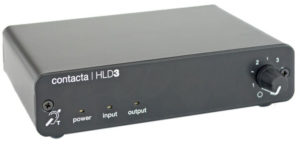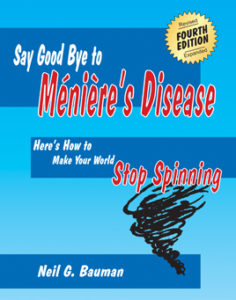by Neil Bauman, Ph.D.
There is a terrible, yet invisible, toll that hearing loss extracts from many hard of hearing people at family gatherings when family members do not take steps to effectively meet the hard of hearing person’s hearing needs.
To help you understand what it is like to be hard-of-hearing at family gatherings, below are a number of stories from hard-of-hearing people who endured a family gathering this past Easter.
One lady exclaimed, “How I hate holidays and having so many people together at once! Too many conversations. My brain gets so tired from trying to listen and figure out what everyone is saying that I eventually just shut down. It’s exhausting and so frustrating. I can’t wait until everyone just goes home. I love my family, but I’m already exhausted.”
Another lady chimed in, “I feel the same way! I thought it was just me. I love my family, but I just get so lost and overwhelmed trying to keep up with the simplest conversation.”
Another person explained, “I know how important it is to have quiet time to recharge your brain. I find myself fantasizing about quiet time when I’m in a noisy environment for too long.”
This is how yet another lady felt, “I also feel this way! I’ve just been told there will be 25 people at our family dinner! I literally feel a stomach ache coming on.”
A lady related, “We went to visit my husband’s family for the holidays, and I don’t think that anyone really understood why the whole thing stressed me out so much. I couldn’t even begin to explain. Nothing gets me more frustrated than being in a room with tons of people talking at once! I usually escape to the hallway to hang out with a dog or cat.”
Another lady lamented, “It is exhausting to have to hear so much. I usually find myself a little quiet time too. I’ll spend extra long in the bathroom or go outside. I’ve spent time with people’s pets to avoid human speech too. After a couple of hours my brain is fried. I don’t have a large family so that’s usually not my problem. It’s other large groups that get me.”
Another lady had an unusual coping strategy. She explained, “My Easter was okay until it was time to eat and later watch a movie. I left twice to return home to peace and quiet.. Fortunately, I lived right across the street so I could do this.”
Another lady lamented, “This was my first get together with a group of people after getting my new hearing aids. Even though the group was only 7 people, they were all loud. It was overwhelming. I couldn’t wait for everyone to leave. And the first thing I did was take my hearing aids out and rest my ears. Very stressful day and I’m so glad it’s over!”
One lady sorrowfully explained, “I feel like a burden to my family who either have to talk slower or repeat everything they say. It makes everything so tiring. I have severe headaches after even a short time of trying to communicate with anyone.” Then she asked, “The one question I have is how do you get over the anxiety of being around people.”
Unfortunately, there is no easy answer. The ideal solution would be that only one person speaks at a time. To ensure this happens, and so that the person with hearing loss knows who is going to speak next, you could pass around a “talking stick”. If you are not holding the “talking stick” you keep your mouth shut. It’s that simple.
We would love it if everyone did that, but only in exceptional families will that ever happen.
The reason it seldom happens is that by meeting the needs of the hard-of-hearing family members, it would totally destroy the dynamics of the hearing members conversation.
As a result, people with hearing loss are stressed out, left out and thus often can’t wait to get out.
Family members need to put themselves into the shoes of their hard-of-hearing family members and figure out ways to meet their hearing needs while at the same time not totally destroying the ebb and flow of the family conversation.
One lady explained, “I am currently “hiding” upstairs in my husband’s childhood room seeking relief. It got to be too much. My head was pounding. Tomorrow there will be 17 people for lunch. I love my in-law family, but I love it more when a couple of us break away for a smaller conversation.”
Notice her last sentence, “I love it when a couple of us break away for a smaller conversation.” Taking the person with hearing loss to a quiet location away from all the racket of the group and having a one-to-one conversation is an excellent coping strategy. If each family member did this one by one, the person with hearing loss could have a good little chat with each person present without all the strain and stress of trying to hear in a room where their ears just cannot function.
Hearing family members, how about it? Can’t you tear yourself away from the main group for a few minutes to chat with your hard-of-hearing loved one? Sure you may miss something. But think of your hard-of-hearing loved one. He/she misses everything!



I used to get your newsletters. I tried (twice) signing up today and am not getting the email from you (it’s not in spam). Also, I was wondering if there is anything I can buy that will help me hear someone talking when there is a lot of background noise? My hearing aids just make everything so loud I can’t have a conversation. Thanks.
Hi Jill:
You are signed in. It’s just that I haven’t had time to put out a newsletter since August. But I’m going to try to get one out soon.
Now to answer your question. The secrets to hearing someone talking in a noisy setting ape twofold. First, use a directional microphone–the more directional the better so it picks up the person you are talking to and leaves out most of the background noise. Some hearing aids have pretty good directional mics, others don’t. Apparently your don’t.
Second, get close. If you get the microphone only an inch from the speakers lips, you are only going to hear that person’s voice. The background sounds will almost all be eliminated.
What I do in noisy places is use a PockeTalker (or Audable) and plug in a super-directional microphone into the microphone jack in place of the microphone that comes with the PockeTalker/Audable. Then you plug a neckloop into the earphone jack and switch your hearing aids to t-coil mode. Now you won’t hear anything except what the super-directional microphone picks up.
I use this arrangement when I am at noisy conventions, etc. I just hold the microphone about waist high and aim it at the mouth of the person to whom I am speaking and hear them wonderfully well in spite of all the racket around me. It should work for you as well.
Here’s what I use.
Link to the PockeTalker http://hearinglosshelp.com/shop/pocketalker/
Link to the Audable (same as the PockeTalker but much cheaper) http://hearinglosshelp.com/shop/audable/
Super-directional microphone http://hearinglosshelp.com/shop/super-directional-handheld-microphone-with-stand/
Neckloop http://hearinglosshelp.com/shop/neckloop-passive/
If your hearing aids don’t have t-coils, then all is not lost. You can take your hearing aids off, and instead of a neckloop, plug in earbuds or headphones, turn up the volume on the PockeTalker and hear very well that way. I often do this.
Cordially,
Neil